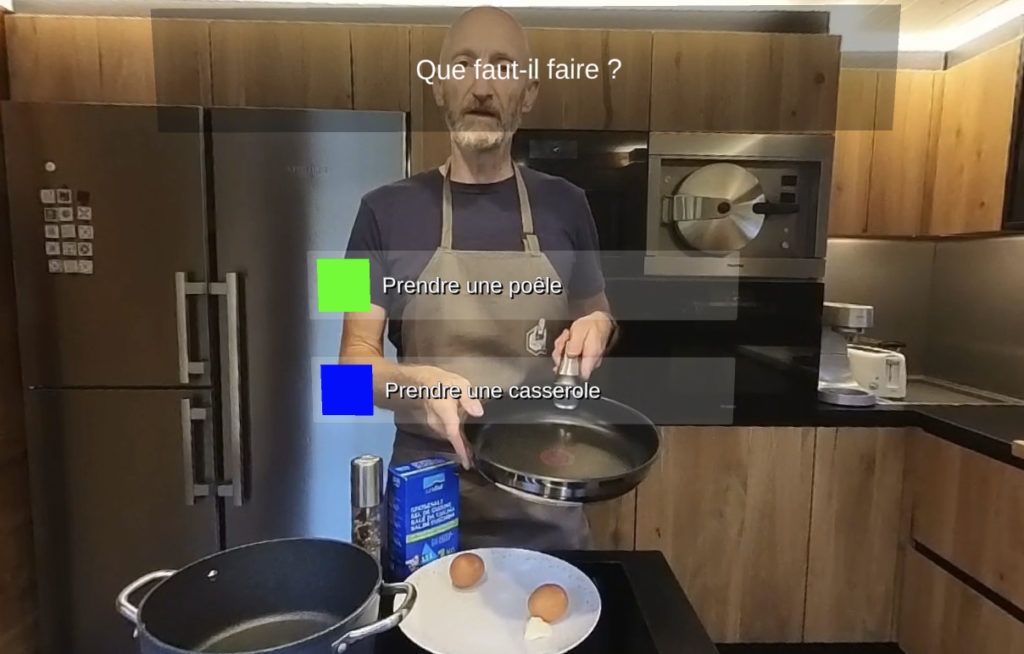Periludus
Self-service virtual reality for learning for people with intellectual disabilities
Type of project: Feasibility study
Disability concerned: Mental disability
Topics: Personal and health care, autonomy
Status: Completed
In this study, we want to understand whether and how the use of virtual reality (VR) can help instructors of individuals with intellectual disabilities (ID) to learn appropriate responses to exceptional, dangerous or complex situations.
Learning to react appropriately in exceptional, dangerous or complex situations is a pillar of independence for people with intellectual disabilities. Indeed, these people are often powerless and stressed when faced with situations that they do not understand. In this study, we want to understand if and how the use of virtual reality (VR) can be a way to help instructors of people with intellectual disabilities in this learning. Here are the results:
From interactions with academic experts:
- The use of VR significantly increases the interest and effectiveness of learning
- Using filmed reality (360 VR) rather than modelling (full VR) enhances the impression of reality and the effectiveness of learning
- Focusing learning on problem solving increases the effectiveness of the training compared to teaching only solutions
From interviews with trainers and observation of individuals with intellectual disabilities:
- The average user with ID (typically T21) is able to handle a simple application based on scenarios and option choices
- Teaching material is mostly ‘linear’, describing the solution rather than the resolution of problems arising during learning
- Instructors are looking for pedagogical guidance on how to conduct training in the VR medium
From research on available technologies:
- Commercial offerings lack features specific to the target audience (e.g. text2speech or colour choices), and are expensive especially due to the storage and computing capacity required
- The development of a tailor-made solution is possible at a reduced cost through the adequate use of coding platforms dedicated to 3D video game
Proof-of-concepts have shown that a simplified approach to storage (on an institution’s cloud) and to the application (generic basic functionalities) allows for reduced maintenance and technical support
- The interactions with the instructors allowed to understand the reality of the field on the pedagogical approach in which problem solving is well in place, but transmitted in an informal way, in the interaction between the MSPs and the individuals with intellectual disabilities
- Interactions with individuals with intellectual disabilities helped to validate the hypotheses concerning the interest and usability of a simple VR learning solution
- Interactions with academics validated the hypotheses on the interest of VR, but above all strengthened the pedagogical (how to structure the training) and behavioural (how to make the training effective and non-disruptive) aspects

Contact info
Association Wizit
Thierry Loo
thierry.loo@wizit.org
